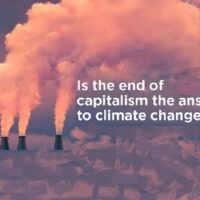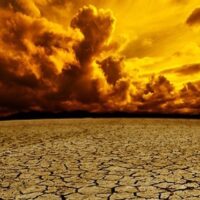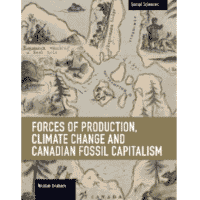-
New documents reveal callousness of fossil fuel execs—and Canada’s complicity
If your climate policy is supported by the oil and gas industry, it’s not climate policy at all
-
Colombian president Gustavo Petro calls for an end to the War on Drugs in historic UN address
In his speech to the UN General Assembly, the Colombian president highlighted the necessity of ending the war on drugs and saving the environment.
-
It’s time to call it what it is: A capitalism-induced ecological crisis
One-third of Pakistan is under water. Record heat waves blanket the globe driving up temperatures beyond what humans can survive. Polar glaciers are melting much faster than scientists predicted. Droughts, fires and floods are ravaging the planet, forcing the displacement of tens of millions of people. And this is just the beginning.
-
The missing data behind Manchin’s dirty pipeline deal
Dems touting a bill to expand fossil fuel pipelines have not released any emissions projections showing what the bill would do to the climate.
-
Biden is helping fossil fuel donors weaken his clean water rule
In backing Joe Manchin’s “permitting reform,” the president could undermine his own EPA initiative.
-
Degrowth is the only path to a sustainable future
It is incumbent upon us as a species to seriously consider radical alternative, anti-capitalist and ecological futures
-
Kiss the Amazon goodbye?
As devastating as Trump (4 more years?) was for the environment, President Jair Bolsonaro’s MBGA or Make Brazil Great Again has one-upped Trump. He’s single-handedly destroying the world’s largest rainforest. It may be the single most important ecosystem for the survival of Homo sapiens. As such, with such a big important target to ravage, Bolsonaro’s making Trump look weak.
-
We will march, even if we have to wade through the Pakistani floodwaters: The Thirty-Sixth Newsletter (2022)
Dear friends, Greetings from the desk of Tricontinental: Institute for Social Research. Calamities are familiar to the people of Pakistan who have struggled through several catastrophic earthquakes, including those in 2005, 2013, and 2015 (to name the most damaging), as well as the horrendous floods of 2010. However, nothing could prepare the fifth most populated […]
-
Justice 4 Jackson. “Help us fix Jackson’s water system and build more autonomy and people power in the city.”
Jackson, Mississippi is currently suffering through an unprecedented water crisis.
-
What’s going on with the Greenland ice sheet? It’s losing ice faster than forecast and now irreversibly committed to at least 10 inches of sea level rise
Alun Hubbard: “As a field glaciologist, I’ve worked on ice sheets for more than 30 years. In that time, I have witnessed some gobsmacking changes.”
-
‘Dangerous heat waves’ to be more frequent and more sustained in near future
Dangerous heat waves to hit three times more often than today; tropical regions including India likely to face extreme heat conditions almost daily by the end of this century.
-
Capitalism created the climate catastrophe; Socialism can avert disaster: The Thirty-Fifth Newsletter (2022)
In November 2022, most member states of the United Nations (UN) will gather in the Egyptian resort city of Sharm El Sheikh for the annual UN Climate Change Conference.
-
Capitalism won’t fix the climate crisis. It will also not survive it
McGuire: Around 2.4 trillion tons of carbon dioxide has been released into the atmosphere in the last couple of centuries. This is acting as a blanket, keeping in heat that would otherwise head off into space.
-
Cuba’s post-revolution architecture offers a blueprint for how to build more with less
Around the world, there’s a conjoined crisis of climate change and housing shortages—two topics at the top of the list of discussions in the recent COP26 climate summit in Glasgow.
-
Blaming China and other developing countries for climate change ‘is simply racist’
‘Time to call a spade a spade ….’
-
Sweatships on troubled waters
Luxury cruises are an expression of capitalism’s worst instincts.
-
EU energy crisis deepens as drought hits electricity output
Sanctions against Russia and Europe’s worst drought in 500 years are amplifying the energy crisis in countries such as Italy, France, and Germany.
-
A next-level water crisis: Colorado River Basin faces Tier 2 restrictions
The unprecedented move arrives as southwestern states wrangle over how to cut water use.
-
For China heat waves are the ‘new normal’ under climate change
It’s not a mirage. Across China, heat waves are becoming more frequent, lasting longer, and getting hotter — with deadly consequences.
-
Forces of Production, Climate Change and Canadian Fossil Fuel Capitalism
Nicolas Graham’s book on forces of production and fossil-fuel capitalism gives an important analysis of why fundamental change is needed to solve the climate crisis, finds John Clarke




















